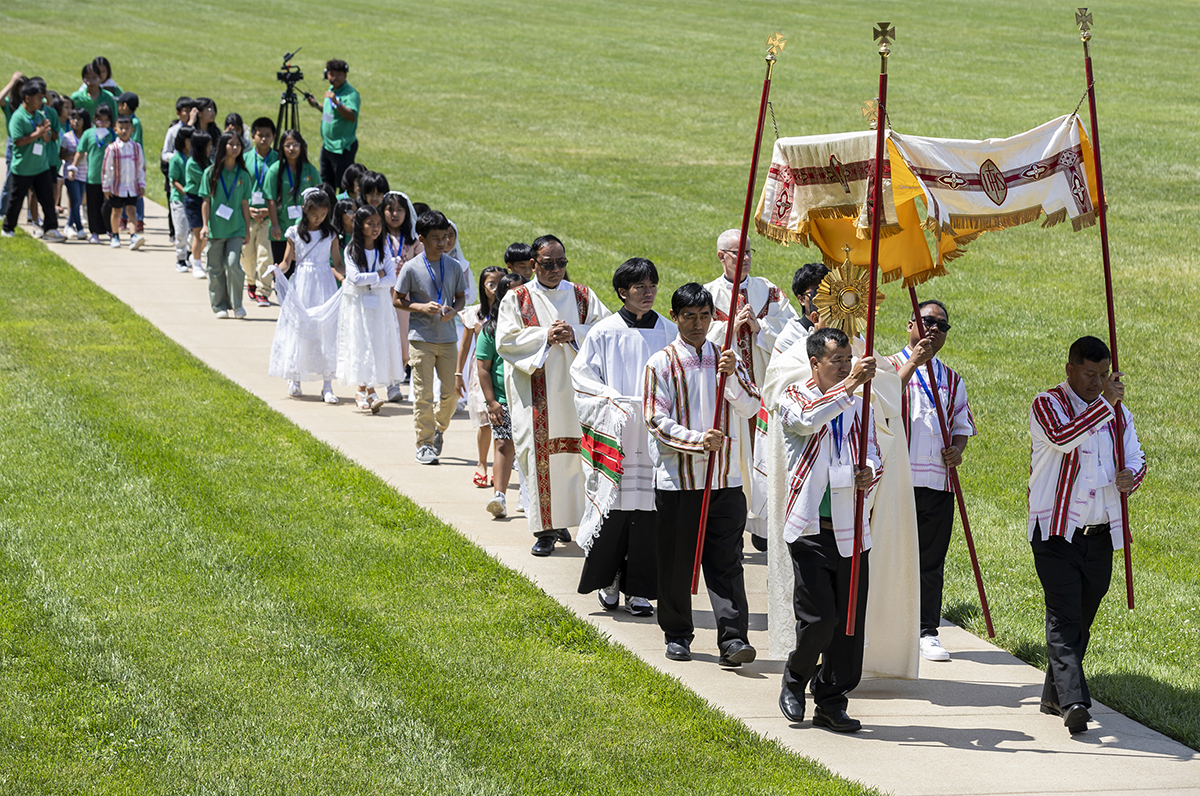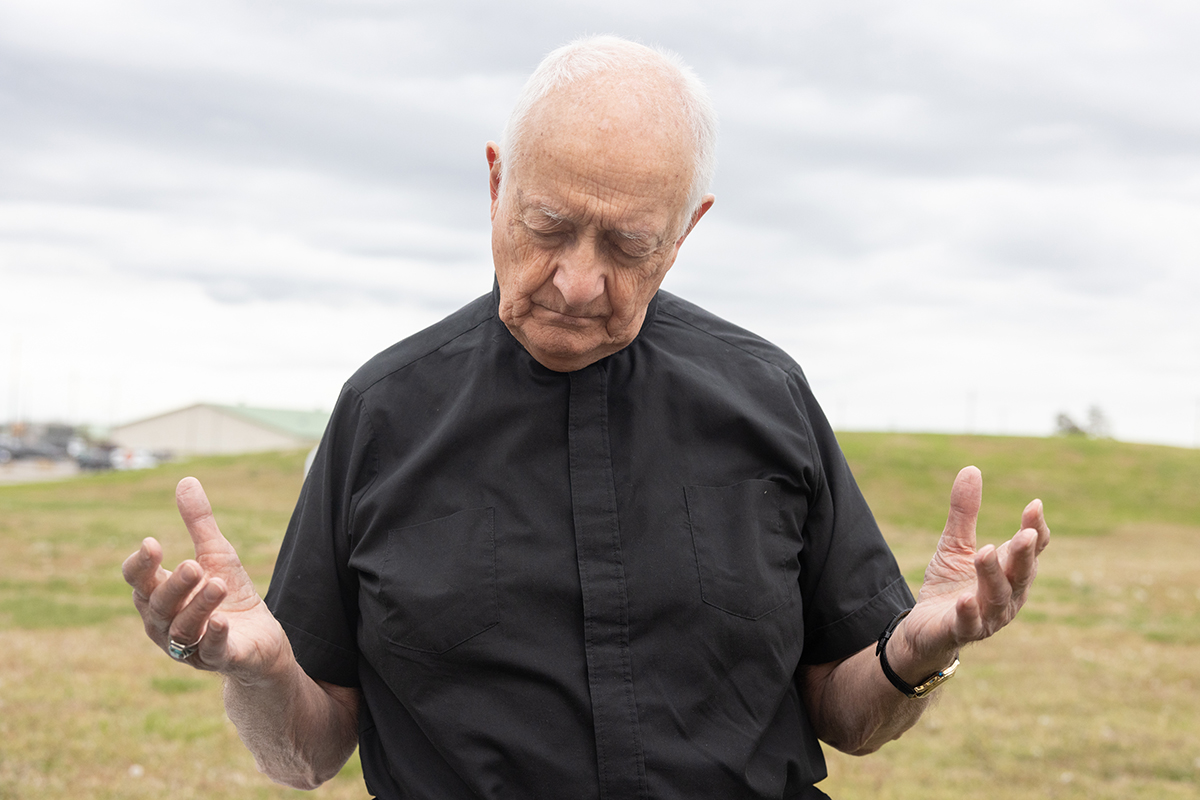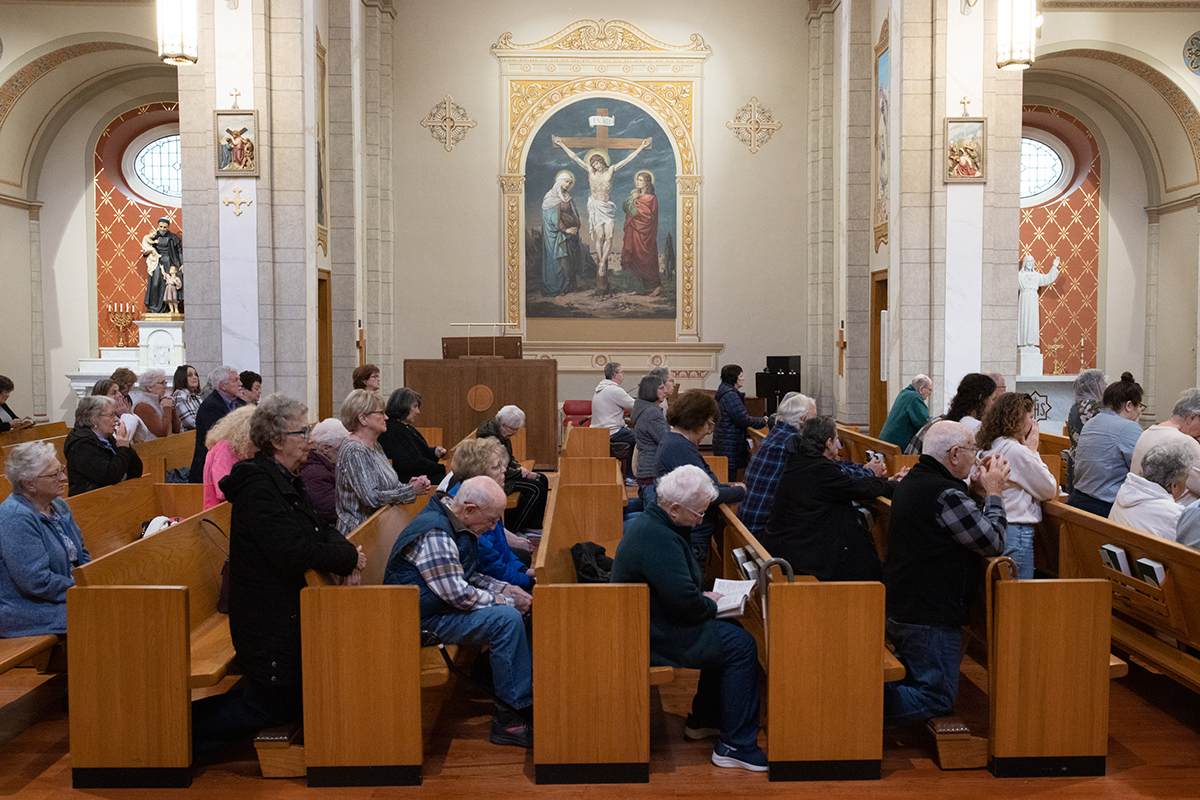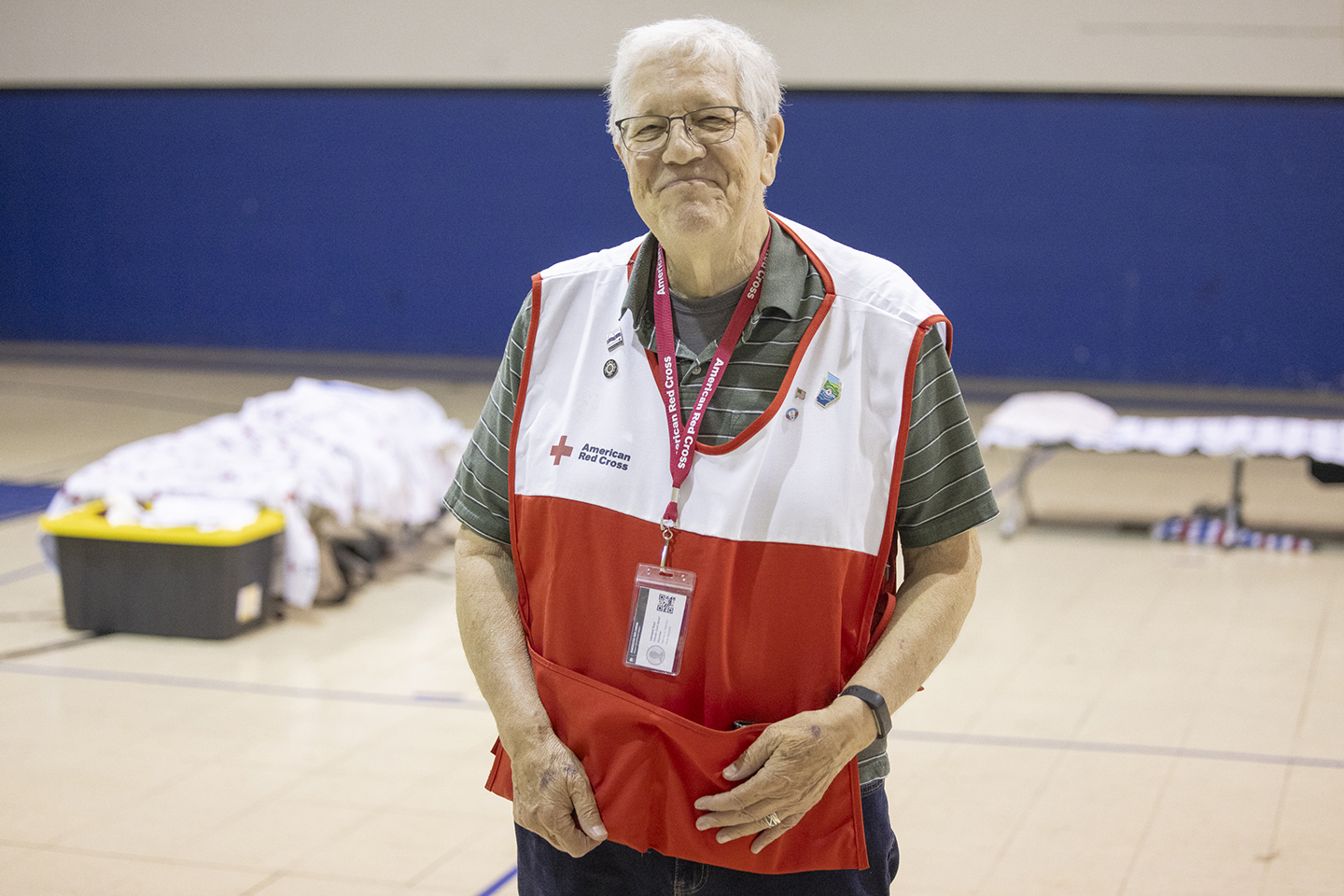Sr. Helen Negri: ‘Cornerstone’ of Marygrove
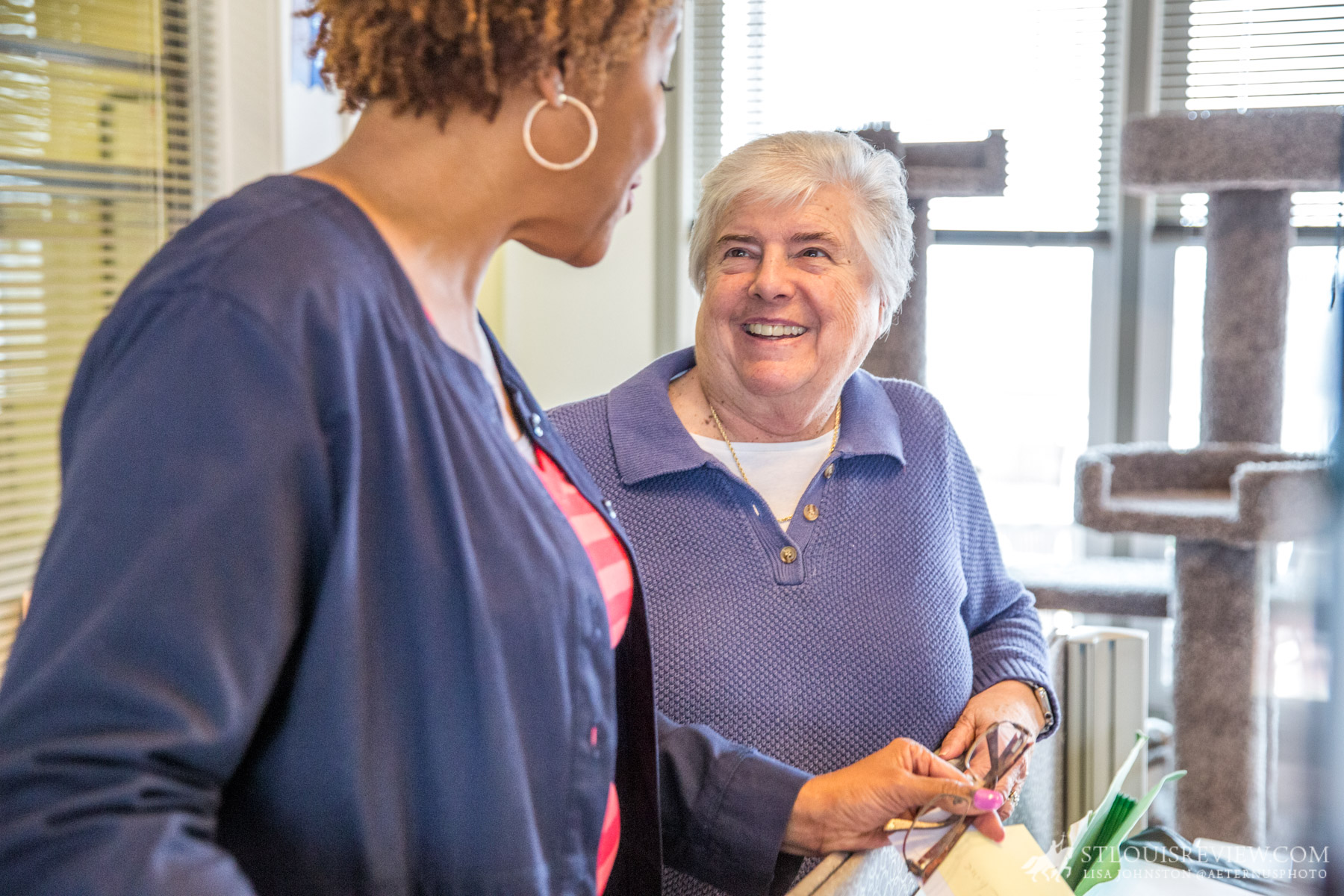
Sr. Helen Negri helped Marygrove respond to changing family dynamics
In 1983, Msgr. Robert Slattery, then president of Catholic Charities of St. Louis, recruited Sister Helen Negri to become the chief operating officer of Marygrove. She began with seven residents and built it to a multifaceted program of residential care for more than 200 children every day (with 1,300 served every year) with behavioral health problems.
The Sisters of the Good Shepherd had just relinquished the agency, and the staff had asked her where the other nuns were — she was it. She gave them her beeper number, and they used it liberally, Sister Helen said with a laugh.
Among her first decisions was to allow the girls to wear lipstick, followed closely by a decision to stop requiring children to go to Mass at 6:30 every morning, instead encouraging them to attend by choice. “Too often kids who are forced to go to Mass don’t want to go later on,” said Sister Helen, a member of the Daughters of Charity. “So I started out being very popular because of those two decisions.”
At times, her role was a lot of fun but at times, it’s been a challenge, Sister Helen said. She hopes to hang on to the fun after she retires soon, continuing to help with development work at Marygrove from time to time while relinquishing daily duties.
Life has changed and children’s problems are a lot different than 35 years ago, she said, adding that Marygrove has adjusted.
The family structure is the biggest change. Often today, she said, children come home from school to an empty house, and a family meal isn’t part of the routine. Or there may be a number of unrelated adults in the household, living there for short periods of time. Too often, the adults have drug problems.
The Centers for Disease Control and Prevention reports that 39.8 percent of all births in 2016 were to unmarried mothers compared to 5 percent in 1965 and 20 percent in 1983. Children born to unmarried mothers are more likely to grow up in a single-parent household, experience unstable living arrangements, live in poverty, and have socio-emotional problems, according to multiple studies and the U.S. Census Bureau. The bureau reports that only 43.5 percent of custodial parents who are due child support received payments from noncustodial parents.
“Does anyone care whether you do well in school? Does anyone care whether you go to school? Or go to church, or have a library card or read a book? That’s just not there for these kids. So, left to their own devices they go out and find other kids who have the same family dynamics. They form groups, gangs, and that leaves the rest of us to figure out how to make something good happen in their life,” Sister Helen said.
“We have no idea what it’s like to live in that kind of chaos.”
The children were much easier to manage 35 years ago, she recalled. But regardless of their struggles, they’re welcome at Marygrove. “What we say is, ‘What do you need and how can we help you get to where you want to be in life?’” Sister Helen said.
The mission of Marygrove is to provide quality mental health services to severely disturbed children, young adults and their families who are economically disadvantaged.
Many children who come to Marygrove are older. Some are in a transitional housing program, living in apartments rented by Marygrove. The program teaches them how to live in the community, how to access resources, finish school, budget, “all of the things that make for success,” Sister Helen said.
It’s an extensive process, and “life here involves celebrating little victories,” Sister Helen said. “It might be a victory of not losing your temper, finishing your homework, getting a good grade in school, a good session with your therapist where you get some insight about yourself. Over time, we want to see more and more of those little victories add up.”
Sister Helen touts Marygrove’s Resident of the Month program, with two children chosen each month for their attitude and progress toward their goal. The reward is a gift card, a special dine-in meal and a restaurant outing. Once a year, residents are honored at a banquet at Kemoll’s.
“We celebrate them for all the good they have been able to accomplish,” she said. “That’s the fun, when you see someone all dressed up and they’re proud of their accomplishments. And you see a parent that’s become a part of their child’s life because they’ve worked with us. It’s very rewarding. There’s nothing like it.”
The James Eagan Award, for $2,000, is given to a resident who’s in transition and will use the money when he or she moves out.
Marygrove board president Timothy M. Drury called Sister Helen “the cornerstone” of Marygrove, showing great leadership to the mission of giving children roots to heal and grow. She never allows anyone to say, ‘no,’ he said. “When there was a need, Sister Helen was always up front to expand Marygrove.”
She “was unwilling to let these kids go. She thought about them, loved them, cared for them and wanted to make sure they had a place to go if they weren’t ready to go to a place on their own,” Drury said.
Sister Helen, who rides a bike, line dances and avidly follows Cardinals’ baseball, said no matter the changes, “Marygrove will continue to follow the needs of the kids.”
>> Ways to help
Marygrove provides treatment and support to young people struggling with emotional and behavioral issues relating from abuse, neglect and trauma through its comprehensive continuum of residential and community-based programs. Marygrove transforms hundreds of young lives each year.
• Marygrove is looking for qualified therapeutic foster parents to provide a family environment of trust and support. For more information, contact Michelle Purnell at mpurnell@mgstl.org or (314) 497-5249.
• Volunteer as a mentor or tutor or to assist with mailings, repair equipment, scan records, pick up donations, assist at fundraising events or more. Contact Julie Gary at (314) 830-6249 or jgary@mgstl.org.
• Volunteers who serve as Special Friends work with children to learn about and find God in personal discussions, art activities, group exercise and other creative ways. Contact Marcia Koester, director of mission integration, at (314) 830-6225 or mkoester@mgstl.org.
• Donate at www.stlouisreview.com/jdI or make checks payable to Marygrove and mail to Marygrove, 2705 Mullanphy Lane, Florissant, MO 63031.
• Marygrove is hosting a Spring Fling luncheon on Thursday, April 19 at Norwood Hills Country Club. Doors open at 10:30 a.m. and lunch is at noon. Tickets are $30. Visit www.marygrovechildren.org.
In 1983, Msgr. Robert Slattery, then president of Catholic Charities of St. Louis, recruited Sister Helen Negri to become the chief operating officer of Marygrove. She began with seven residents … Sr. Helen Negri: ‘Cornerstone’ of Marygrove
Subscribe to Read All St. Louis Review Stories
All readers receive 5 stories to read free per month. After that, readers will need to be logged in.
If you are currently receive the St. Louis Review at your home or office, please send your name and address (and subscriber id if you know it) to subscriptions@stlouisreview.com to get your login information.
If you are not currently a subscriber to the St. Louis Review, please contact subscriptions@stlouisreview.com for information on how to subscribe.

